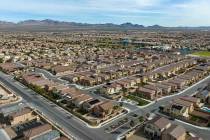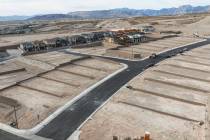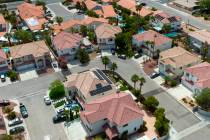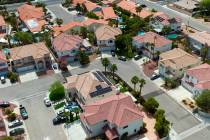U.S. sales of houses increase
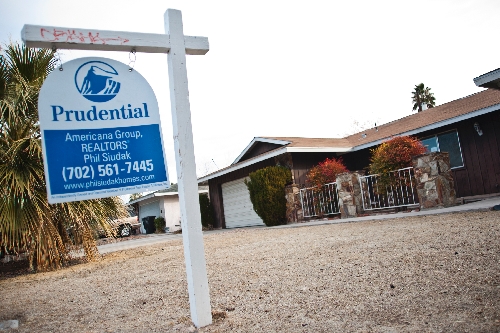
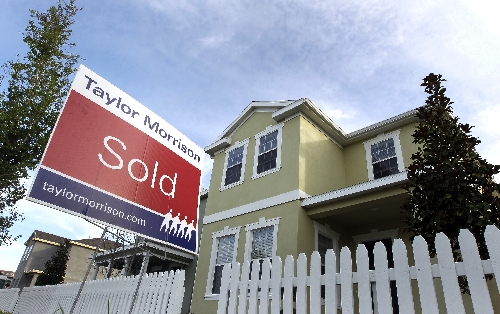
WASHINGTON – Americans bought more previously owned homes in April, a hopeful sign that the weak housing market is gradually improving.
The National Association of Realtors said Tuesday that home sales rose 3.4 percent last month to a seasonally adjusted annual rate of 4.62 million. Home sales have rebounded after falling in March and are near the pace from January and February, which was the best winter in five years. Still, annual sales are well below the nearly 6 million equated with healthy markets.
A mild winter encouraged some people to buy homes earlier this year. That drove up sales in January and February, making March weaker. First-time buyers, who are critical to a housing recovery, rose in April to 35 percent of sales. That’s up from 32 percent in March.
“First-time homebuyers are slowly making their way back,” said Jennifer Lee of BMO Capital Markets. “That is still below the 40 percent to 45 percent range during healthy times, but the highest in almost half a year.”
Homes at risk of foreclosure accounted for 28 percent of sales. That’s roughly in line with March sales but down from 37 percent of sales in April 2011. The median sales price in April rose to $177,400, up 10.1 percent from a year ago.
Sales rose in all regions, though some markets within those regions such as Las Vegas saw a drop in sales. The Greater Las Vegas Association of Realtors reported 3,185 single-family home sales in April, down nearly 10 percent from 3,534 sales in March. They’re up 3.3 percent from 3,084 sales in April 2011.
The median price in Las Vegas rose 4 percent to $127,900 in April, the third consecutive monthly increase. It’s up 2.3 percent from a year ago.
Modest increases in home sales are the latest sign that the market could be starting to turn nearly five years after the housing bubble burst.
Looking at construction starts, existing home sales and foreclosure rates, housing is 37 percent of the way back from its low point, up from 20 percent in April 2011, said Jed Kolko, chief economist of Trulia.com online listing service.
In addition, some of the nation’s largest banks have begun to undertake more short sales rather than merely foreclosing on struggling homeowners, an approach that experts say will cut down on vacant homes and help to heal the market.
Asking prices have risen nationally for three straight months, and are up quarter-over-quarter in 92 of the 100 largest metros, he noted.
“Aside from a slight stumble in March, the housing recovery is progressing slowly but steadily,” Kolko said.
The sales pace in January was the highest since May 2010 – when a popular home-buying tax credit expired. Builders are more confident and are starting to build more homes. Mortgage rates have never been cheaper. And the job market is improving, which has made more people open to buying.
Still, many would-be buyers are having difficulty qualifying for home loans or can’t afford larger down payments now required by banks. Some also fear prices could keep falling.
Builders have gained confidence since last fall, in part because more people have expressed interest in buying. In May, builder optimism rose to the highest level in five years, according to the National Association of Home Builders/Wells Fargo builder sentiment index.
Last week, the Commerce Department reported that builders started work on more homes and apartments in April, pushing housing construction to a seasonally adjusted annual rate of 717,000 homes. That was near a rate of 720,000 homes and apartments being built in January, which had been a three-year high. But even with the recent strength, housing starts remain at roughly half the pace considered healthy.
Many economists believe that 2012 could be the year that housing finally makes a positive contribution to overall economic growth. That hasn’t happened since 2005, before the housing bust.
Review-Journal writer Hubble Smith and The Washington Post contributed to this report.









